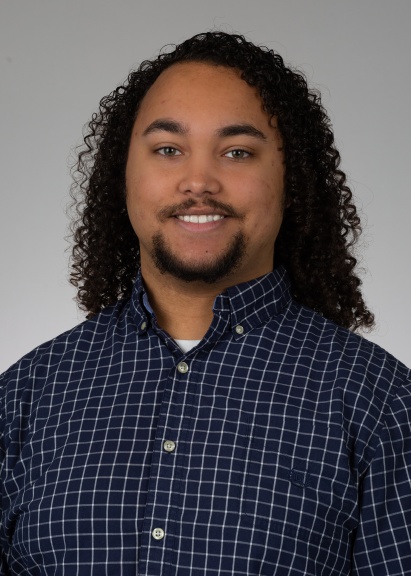Nicolas grew up in Columbia, SC and attended the College of Charleston. After graduating in 2018, he participated in a post-baccalaureate experience program (PREP) at the Medical University of South Carolina, working in the lab of Amy D. Bradshaw Ph.D. He came to Vanderbilt University in the fall of 2019 via Interdisciplinary Graduate Program and ultimately joined the lab of Mariana Byndloss D.V.M, Ph.D. His thesis project is centered around understanding the mechanisms bacterial pathogens use to take full advantage both of the human host and the gut microbiota. He is specifically looking into the metabolism of short-chain fatty acids and amino acids.
Learn a bit about his research from Nicolas himself!
"Metabolic interactions of pathogenic Enterobacteriaceae and the gut microbiota in the inflamed gut"
When you were 5, what did you want to be when you grew up?
I wanted to be a naturalist like those who explore the expanses of the ocean and jungles. I was enthralled by nature documentaries as a child. Even today, I am a sucker for a deep ocean documentary.
What was it about science that drew you to it?
Science empowers me to continue to ask and attempt to answer the questions I have about the natural world. Meaning, I can explore without ever leaving the lab.
In a nutshell, what do you study?
Gut Microbiota Colonization Resistance and S.Typhimurium pathogenesis.
Why is your research important? What is its larger impact, and/or how do you foresee it impacting public health?
The mechanisms through which pathogens overcome the gut microbiota are currently unknown. My research premise has be the potential to identify therapeutic targets for enteric bacterial infections. Potential targets remain in public health interest with the trend of antimicrobial resistance ever growing.
What has been your biggest challenge as a scientist?
As many do during graduate school, I struggle with imposter syndrome. Sometimes I feel out of place or as if I am not performing to the best of my ability.
What's next for you?
Immediately for me, is the qualifying exam. However, in the long-term I would like to continue working in academia investigating metabolic communication between commensal and pathogenic bacteria in the human host.
Best way to spend time while waiting on an experiment to finish:
Instagram!
What are you looking forward to doing most, once the pandemic is under control, and life starts to return to a state of normalcy?
Visit family, re-connecting with my loved ones is something I cannot wait to do in person.
Do you identify as an under represented minority? If so, which URM communities do you identify with?
I am Biracial, specifically German African American.
How does VU/VUMC/MMC support members of your community? Where can we do a better job?
Organizations such as OBGAPs, IMSD offer mentoring opportunities that garner me insight into my trajectory that is not my PI, someone with an outside perspective.
What has been your biggest challenge being a URM in science/academia?
It is difficult to envision myself in academia without seeing many URM post-docs or professors.
Is there a resource that has been valuable to you in your journey?
Honestly, my PI has thus far been integral to my experience in graduate school. She models for me how URM can work in academia, and work with administration to better the environment for other URM.
What advice would you give a graduate student who identifies with similar minority groups as you?
Never shy away from something, just because you may be the first to do so.
Is there anything else you'd like to add?
Life is short and often too serious, there's always time for a little laughter.
